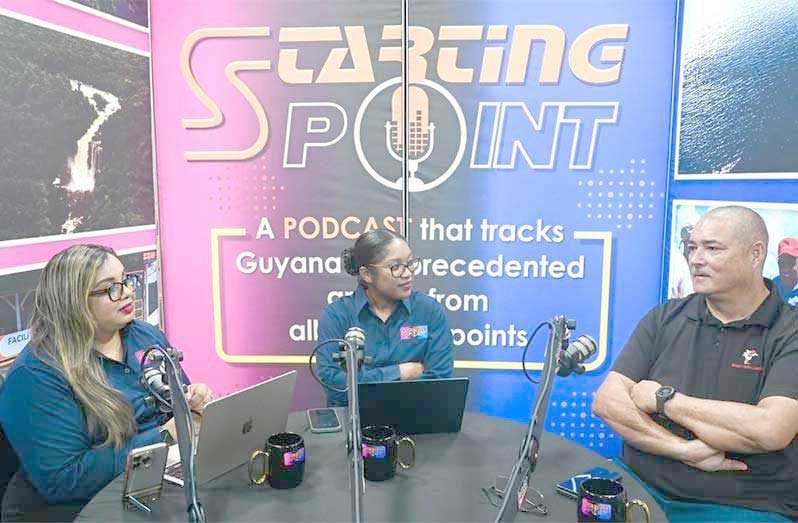-Fernandes says, as Guyana accelerates food-security drive
AS Guyana accelerates its efforts towards food production sufficiency and becoming the breadbasket of the Caribbean, youths are being called to “step up to the plate” to drive agricultural transformation.
Bounty Farm Ltd. Managing Director, David Fernandes, elaborated on this during a recent episode of the Starting Point podcast, where he focused on the government’s strong vision and growing private sector collaboration, all while Guyana continues to emerge as a key player in the Caribbean’s food security drive.
Speaking on Guyana’s food security goals, the business leader highlighted that key strides have already been made under the Caribbean Community (CARICOM)’s 25 by 2025 initiative.
While noting that it is a “fantastic vision,” which is “doable,” he opined, “I think the 2030 goals will probably be easy for us to achieve, as well as a nation.”
However, he did make note of the current global challenges-shifting geopolitical dynamics, new tariffs and logistics bottlenecks, which Fernandes explained are lengthening supply timelines and complicating investment decisions.
“If you want to get something, it takes twice as long… We have a dream of developing our industry from A to B by 2027.
“If you don’t start talking about it today; only if you talk about it in early 2026, it might get here by the end of 2027. So these are the challenges that face the world, because we are now struggling to try to solve that issue, where different inputs come from and how the tariff regimes around the world affect those costs…,” Fernandes explained.
In light of the supply chain uncertainties and fluctuating global costs, Fernandes underscored the importance of government-private sector collaboration.
He then emphasised his point about greater involvement for youth in agriculture, calling for a shift in how the sector is viewed.
“I think that the next generation of entrepreneurs need to step up to the plate as well and to try to dream big and to put their muscles to the wheel as such, and actually not just talk about it… I really think that, for us to really achieve self-reliance and self-sufficiency in agriculture, we need to have a large percentage of the population doing this task of feeding the nation,” he warned.
GUYANA’S FOOD SECURITY DRIVE
Guyana’s approach to food security is multi-faceted as the nation is scaling up the production of priority commodities and promoting diversification into new crops, livestock, and aquaculture.
Guyana is also targeting new markets across the Caribbean, and internationally to strengthen food trade and supply chains;
It is also investing in agricultural infrastructure, such as the construction of farm-to-market roads, modern storage facilities, upgraded ports, and improved transport links.
The nation is also modernising agriculture with technology, including through digital extension services, precision farming, and climate-smart practices.
Against this backdrop, Guyana is also transforming the livestock industry and expanding aquaculture and sustainable fisheries;
By doing so, it is also driving value addition and trade logistics, thereby retaining more value within the national economy; and promoting inclusion and empowerment by ensuring that women and young people are central to agricultural transformation.
A SHARED MISSION
In February, with sights set on strengthening the Caribbean’s food supply chain, ensuring resilience, sustainability, and competitiveness, President Dr. Irfaan Ali unveiled a comprehensive plan to boost the region’s agriculture sector.
Dr. Ali, who is the lead Head of Government with responsibility for Agriculture in the CARICOM Quasi Cabinet, presented a holistic framework, which aims to overhaul the food systems across the Caribbean, the Caribbean’s bold vision to strengthen its food supply with the aim of not only safeguarding food security but also modernising agricultural infrastructure, integrating technological solutions, and increasing participation from youths and women.
This new approach, Dr. Ali explained, is aimed at overcoming the challenges posed by climate change, supply chain disruptions, and the shifting global market landscape.
As part of the strategy, the Caribbean will expand its focus to include not only food security but also technological innovation, increased private sector investment, and greater regional collaboration to tackle common challenges.



.jpg)








